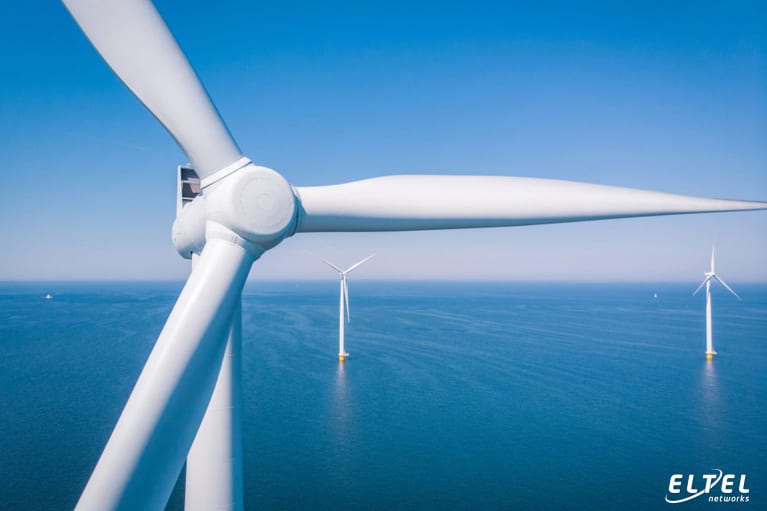
The future of the energy sector in Poland is shaped by global trends dominating the energy industry today. The increase in demand for electricity and the climate crisis are naturally "forcing" European countries to expand and modernise their infrastructure and to reach for clean energy sources and to integrate RES into their transmission and distribution networks. The Polish energy sector faces many challenges in the coming years. What are the risks and opportunities?
The energy market in Poland needs to evolve to meet the growing demand for electricity and reduce greenhouse gas emissions into the atmosphere. Guaranteeing energy security in the country requires a significant increase in investment in adapting domestic energy networks, as well as the structure of electricity production itself, to EU standards. Increased energy consumption should be accompanied by far-reaching changes. The widespread generation of energy from coal must be replaced by the generation of energy from renewable sources. It is necessary to increase the use of renewable sources based on photovoltaic systems and on wind technology (in the form of wind farms both onshore and offshore). All this requires the Polish energy industry to take its time and overcome certain limitations.

In the face of the global climate crisis, renewables such as wind energy are becoming major sources of energy.
Transformation - risks and threats in the electricity industry
Participants in the electricity market are not in an easy position at present - especially the sector responsible for building, expanding and modernising infrastructure. Energy projects are long-term projects, usually implemented over several years, which is not only due to their execution phase, but also by tedious and time-consuming formal and legal process preceding it, which is necessary for each such implementation. Electricity projects are compromised by the economic instability that Poland (and others) is currently experiencing. The unstable materials market, the hardly predictable price level of steel, copper and other construction raw materials, plus high inflation, affecting, among other things, labour costs, do not facilitate the transformation of the energy market in Poland. Now, the profitability risk concerns almost every project. Add to this the difficulties with availability of highly qualified staff specialised in specific areas of the electricity industry. A good example of this is the growing need for experienced specialists in the increasingly used HVDC technology, which facilitates the cross-border interconnection of incompatible national power systems and the integration of different sources of electricity generation into a single network.
Read also: Advantages of power transmission in HVDC transmission system. Are there also any disadvantages?
How does Eltel Networks deal with the challenges, increasing the chances for success?
Participation in the transformation and development of the energy market in Poland and undertaking difficult projects facilitate Eltel Networks highest international standards, according to which the company has been working for years. They concern both the project management itself (IPMA certification), as well as work safety policy or the innovative technical solutions applied on a daily basis. Maintenance, inspections and inventories of power infrastructure facilities and other works are performed with the use of drones, which facilitates the tasks and increases the safety. Diagnosis of objects or their selected elements is carried out using spatial thermal imaging. These and other tools, as well as efficient management, make it possible to accelerate work and sometimes also reduce the costs of individual project tasks. The company also contributes to local energy security and the use of renewable energy sources by building 3S (Sun Smart Store) technology. Eltel Networks, as one of the few companies in this sector, also has its own Training Centre and is constantly engaged in intensive education of its technicians in order to supplement its own resources and to introduce well-prepared installers and electricians to the Polish power industry.
See also: Electricity services - what to look for when choosing a company
The present and future of the Polish energy sector in figures
The share of coal in global and domestic energy production is falling. In 2020, Poland has gone down to less than 70% black energy in its energy mix, and the downward trend in coal-fired power should continue - for both environmental and economic reasons. In turn, the importance and share of clean energy sources in total national energy production is increasing. This is due, among other things, to prosumer photovoltaics and wind power plants. Unfortunately, electricity imports in Poland are at record levels, currently accounting for nearly 8% of the country's total energy consumption, and this percentage is likely to increase as demand for electricity in the domestic market continues to grow faster than production. The future requires changes that must start today. Unfortunately, the energy transition not only involves many actors in the process, but also considerable investments. Their scale between now and 2040 may reach roughly PLN 1 600 milliard.
The assumptions (commitments) of Polish energy policy are ambitious. According to the Ministry of Climate and Environment, more than half of the installed capacity in 2040 is to be zero-emission sources, with the implementation of offshore wind power and the launch of a nuclear power plant particularly contributing to this. Among the key elements of PEP2040 (Poland’s Energy Policy 2040) are:
- increase the share of RES in gross final energy consumption in all sectors to at least 23% (by 2030),
- development of offshore wind energy (reaching a capacity of around 5.9 GW in 2030 and around 11 GW in 2040),
- increase in installed photovoltaic capacity to 5-7 GW in 2030 and 10-16 GW in 2040,
- share of coal in electricity generation not exceeding 56% in 2030.
***
In view of recent world events and Russia's invasion of Ukraine, which began on 24 February 2022, global (and above all European and including Polish) energy policy is undergoing quite rapid change. The changing geopolitical conditions are forcing an acceleration of the energy transition and a rapid remodelling of the energy management system in Poland. Time will tell what the war - including the economic one in the fuel and energy sector - will end with, in the meantime... in view of Russia's actions and the increased risk of cyber attacks on Poland's energy infrastructure, PSE is implementing special procedures, setting up crisis headquarters to watch over the country's energy security and be able to respond appropriately if problems arise.
See also: Blackout - a phenomenon we cannot avoid?
Author: Krzysztof Lobert
